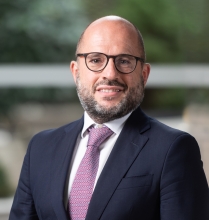COVID-19: Recommendations for accessing the financing facilities offered under Royal Decree-Law 8/2020
Spain Corporate/Commercial Commentary
In this article we offer a few recommendations to assist the self-employed and companies with fulfilling the general requirements laid down by the decision for accessing this new financing, and so speed up application procedures at financial institutions.
On March 26 the Official State Gazette published the decision by the Secretary of State for Economy and Business Support, setting out the terms and conditions for the first tranche of up to €20,000 million for public guarantee facilities committed by the government in Royal Decree-Law 8/2020.
The aim of these guarantees is to enable financial institutions to provide new loans and other types of financing to companies and the self-employed for meeting their working capital financing needs arising, among others, from salary payments, invoices, or working capital requirements determined by financial or tax obligations falling due, which will allow them to maintain employment and to soften the economic effects of Covid-19.
Recommendations for the application process
The terms and conditions of the guarantee facilities provided by Instituto de Crédito Oficial (ICO), the Spanish official credit institute, to financial institutions to enable this type of financing are described here. Moreover, the main Spanish banks started offering these financing facilities secured with the ICO guarantees on March 26, the same date the decision was published. Together with the general requirements set out in the decision, the habitual steps and requirements that each institution has in place for granting financing transactions will also have to be fulfilled to be granted these facilities.
Our aim with this document is to provide a number of recommendations to assist the self-employed and companies with fulfilling at the financial institutions providing the financing facilities guaranteed by ICO, at least the general requirements laid down by the decision for accessing this new financing, so that the process may be made quicker for them.
These recommendations are as follows:
- Applications may be filed between the publication date of the council of minister’s decision (namely March 26, 2020) and September 30, 2020, (although the decision states that this date may be extended).
- The maximum amounts that may be applied for are:
o For the self-employed, up to €1.5 million (in one or more transactions).
o For small and medium-sized companies transactions, up to €50 million may be guaranteed. These transactions may take less time to be granted, in that they may be allowed by the financial institutions themselves, without needing ICO’s prior approval. Any transactions above €50 million, by contrast, will require a prior analysis of satisfaction of the eligibility conditions for the transaction by ICO.
- Because this aid is targeted at companies and the self-employed having their registered offices or addresses in Spain, it will be necessary, depending on the type of financing applicant (small or medium-sized company, self-employed worker, large or medium-sized company), to gather and prepare the habitual types of documents required by the anti-money laundering legislation, including among any others: electronic extract from the commercial registry evidencing the trader’s existence, formation deeds and bylaws in force (for legal entities), taxpayer identification number, evidence of address/registered office in Spain, of the appointment as representative of the individual submitting the application, tax information for the latest fiscal year, and financial statements, etc. If the application is made through a financial institution that the applicant already uses, obviously those documents will not need to be provided again.
- Companies and/or self-employed individuals will not be eligible to use the facility if they were included on the bad credit list held by CIRBE, the Bank of Spain Risk Information Center, as of December 31, 2019, or if, on March 17, 2020, they had filed for an insolvency order, or were in any of the circumstances described in article 2.4 of Law 22/2003, the Insolvency Law (including, a general inability to meet payment obligations as they fall due; the existence of attachments due to outstanding enforcements which have a broad effect on the debtor’s property; or failure to pay, over the previous three months, tax obligations, social security contributions, employees’ wages and severance or indemnity payments). Therefore, in our view it would be recommendable to accompany the application with:
o A certificate that the applicant has no outstanding tax and social security obligations –this certificate may now be obtained remotely-.
o A “screenshot” of the Public Insolvency Register (https://www.publicidadconcursal.es/concursal-web/) showing that at the time of the application the company is not in insolvency; and
o A solemn declaration by the applicant stating that as of March 17, 2020 (and on the date of the application) it had not petitioned for a voluntary insolvency order, and was not in any of the circumstances described in article 2.4 of the Insolvency Law, as mentioned above.
- Because financial institutions are going to ask for evidence of liquidity needs, we believe it highly recommendable to prepare –together with the habitual economic and financial information for financing transactions, including an updated business plan- a few cash projections in as much detail as possible, supporting the need for the requested financing transaction.
It would also be advisable for those projections to show the specific intended use of the requested financing (payment of wages, invoices, meeting the due dates of financial or tax obligations) that will serve to support that the financing fits the eligibility conditions set out in the decision. - We also recommend accompanying applications with a document or documents of any type, evidencing the effect of Covid-19 on the applicant’s business –even though in some cases it will be obvious-. In this regard, proof of a temporary shutdown of operations, or of the material impact of the current health situation on the business (order cancellations, inability to provide services, suspension of clients’ contracts, etc.), may help with the application process for the facility.
Conclusion
These recommendations have been drawn up on the basis of the public information available at the time of writing and therefore may later need to be updated as a result of the authorization given in the decision for ICO to adopt the necessary measures to bring the described facilities into operation. We believe however that, right from this early stage, they may prove to be a useful tool that will allow companies to prepare their applications to financing institutions in advance due to the foreseeable high demand for financing from the most heavily affected sectors.
Contacts



